Five Roads to Freedom: From Apartheid to the World Cup (2010)

Si vous aimez ce film, faites-le savoir !
Five Roads to Freedom: From Apartheid to the World Cup is a 2010 documentary co-directed by Robin Benger and Jane Thandi Lipman that looks at South Africa's revolutionary transformation through the eyes of five men and women who lived under the shadow of apartheid.
The documentary focuses on five individuals from across the social and political spectrum: ordinary people whose experiences are representative of the profound changes of the past 15 years and whose lives in 2010 reflect both the promise and the ambiguities of today's South Africa.
[...]Voir plus...
Bande annonce de Five Roads to Freedom: From Apartheid to the World Cup
Bluray, DVD
Streaming / VOD
Commentaires
Postez un commentaire :
Suggestions de films similaires à Five Roads to Freedom: From Apartheid to the World Cup
Il y a 9431 films qui ont les mêmes thèmes (dont 43 films qui ont les mêmes 6 thèmes que Five Roads to Freedom: From Apartheid to the World Cup), pour avoir au final 70 suggestions de films similaires.Si vous avez aimé Five Roads to Freedom: From Apartheid to the World Cup, vous aimerez sûrement les films similaires suivants :
 , 58minutes
, 58minutesOrigine Etats-Unis
Genres Documentaire
Thèmes Afrique post-coloniale, Le racisme, Documentaire sur la discrimination, Documentaire sur le droit, Documentaire sur une personnalité, Documentaire sur la politique, Politique
Note64%





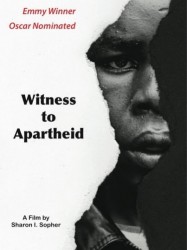
Witness to Apartheid (1986)
, 58minutesRéalisé par Kevin Harrington
Origine Etats-Unis
Genres Documentaire
Thèmes Afrique post-coloniale, Le racisme, Documentaire sur la discrimination, Documentaire sur le droit, Documentaire sur une personnalité, Documentaire sur la politique, Politique
Note68%





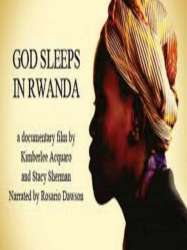
God Sleeps in Rwanda (2005)
, 28minutesGenres Documentaire
Thèmes Afrique post-coloniale, Le racisme, Documentaire sur la discrimination, Documentaire sur le droit, Documentaire sur la guerre, Documentaire historique, Documentaire sur une personnalité, Documentaire sur la politique, Politique
Acteurs Rosario Dawson
Note71%





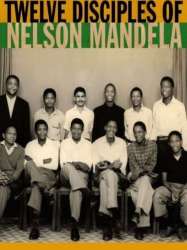 , 1h13
, 1h13Origine Afrique du sud
Genres Documentaire
Thèmes Afrique post-coloniale, Le racisme, Documentaire sur la discrimination, Documentaire sur le droit, Documentaire historique, Documentaire sur la politique, Politique
Note71%





Les 12 hommes qui ont quitté Bloemfontein ont abandonné l’Afrique du Sud en 1960 pour faire prendre conscience à l’étranger de la réalité du Congrès national africain (ANC). Parmi eux se trouvait Benjamin Pule Leinaeng, le beau-père du réalisateur. À son enterrement à Bloemfontein, Harris découvre l’extrême courage de cet homme. Ce film est une acceptation posthume de la paternité de Leinaeng et un hommage aux douze hommes qui ont sacrifié leur propre vie pour la liberté de leur pays.
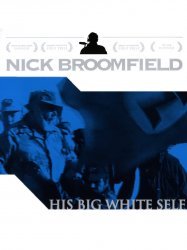
His Big White Self (2006)
, 1h25Réalisé par Nick Broomfield
Genres Documentaire
Thèmes Afrique post-coloniale, Le racisme, Documentaire sur la discrimination, Documentaire sur le droit, Documentaire sur une personnalité, Documentaire sur la politique, Politique
Acteurs Nick Broomfield
Note68%





 , 1h25
, 1h25Réalisé par Nick Broomfield
Genres Documentaire
Thèmes Afrique post-coloniale, Le racisme, Documentaire sur la discrimination, Documentaire sur le droit, Documentaire sur une personnalité, Documentaire sur la politique, Politique
Acteurs Nick Broomfield
Note70%






As We Forgive (2008)
Genres Documentaire
Thèmes Afrique post-coloniale, Le racisme, Documentaire sur la discrimination, Documentaire sur le droit, Documentaire sur la guerre, Documentaire historique, Documentaire sur une personnalité, Documentaire sur la politique, Politique
The film tells the story of two Rwandan women who come face-to-face with the neighbors who slaughtered their families during the 1994 genocide, and their personal journeys toward forgiveness. Featuring in-depth interviews with both survivors and murderers, As We Forgive provides an intimate, first-hand view of the encounters between genocide perpetrators and their victims’ families.
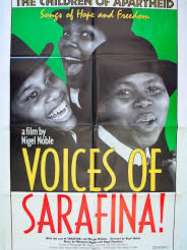
Voices of Sarafina! (1988)
, 1h25Réalisé par Nigel Noble
Origine Etats-Unis
Genres Documentaire
Thèmes Afrique post-coloniale, Le racisme, Documentaire sur la discrimination, Documentaire sur le droit, Documentaire sur une personnalité, Documentaire sur la politique, Politique
Acteurs Leleti Khumalo
Note65%






Rwanda pour mémoire (2003)
, 1h8Réalisé par Samba Félix Ndiaye
Origine France
Genres Documentaire
Thèmes Afrique post-coloniale, Film sur un écrivain, Le racisme, Documentaire sur la discrimination, Documentaire sur le droit, Documentaire sur la guerre, Documentaire historique, Documentaire sur une personnalité, Documentaire sur la politique, Politique
Entre avril et juillet 1994, le massacre Tutsis et des Hutus modérés a fait un million de morts. À l’initiative de Fest’Africa, une dizaine d’auteurs africains se sont retrouvés en résidence d’écriture à Kigali, quatre ans après les évènements, cherchant à briser le silence des intellectuels africains sur le génocide.
 , 1h30
, 1h30Thèmes Afrique post-coloniale, Le racisme, Documentaire sur la discrimination, Documentaire sur le droit, Documentaire sur une personnalité, Documentaire sur la politique, Politique
The documentary includes a live performance by Ibrahim and discussions about two of his compositions, "Anthem for a New Nation" and "Mannenberg".
 Connexion
Connexion
